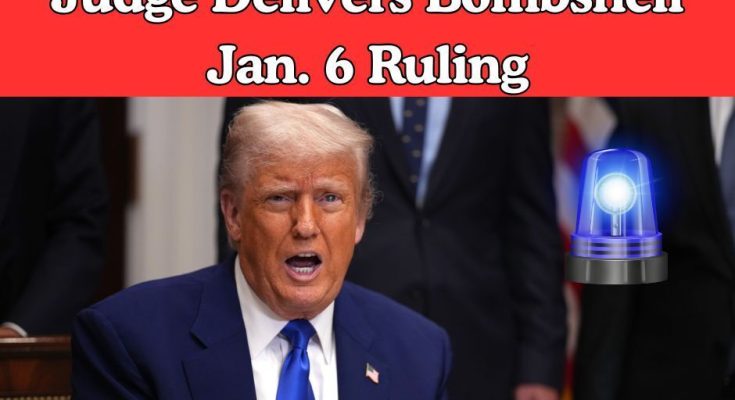The most recent denial pertains to a rioter from Texas who, as stated by the Justice Department, openly boasted about his involvement in the Capitol breach of 2021 on Facebook, sharing photos and videos of himself trespassing during the assault, as reported by Law & Crime.
U.S. District Judge Tanya Chutkan, appointed by Obama, is the latest to dismiss a request for the reimbursement of restitution and fines, following a filing made in February by Stacy Hager, aged 61.
Hager, who was found guilty in 2023 on four misdemeanor charges related to the Capitol breach, requested a refund of the $570 he was mandated to pay, according to the outlet.
Federal prosecutors supported Hager’s request, as they have done for other January 6 defendants, contending that there was “no longer any basis justifying the government’s retaining funds.” However, Chutkan was not persuaded, citing three other recent rejections, all of which occurred in her district in Washington, D.C.
“At least three other judges in this district have denied similar motions where defendants sought reimbursement for fines and fees associated with their now pardoned criminal convictions,” Chutkan noted in her three-page order, which she issued last Thursday.
“The government concurs, acknowledging that pardons generally do not ‘make amends for the past’ nor do they provide any ‘relief for what has been suffered by the offender,’” the judge remarked. “Yet, it adopts the peculiar stance that in this ‘unusual situation,’ reimbursement is warranted.” Chief U.S. District Judge James Boasberg, along with Judges Royce Lamberth and Randolph Moss, are among the D.C. judges who have recently rejected similar requests for restitution refunds from January 6 defendants, as reported by Law & Crime.
On June 30, Boasberg denied a request from a couple in Maryland who sought the return of approximately $1,000 in restitution. Moss rejected a claim from a pardoned former U.S. Marine from New Jersey, while Lamberth dismissed the case of Utah defendant John Sullivan.
In her ruling last week, Judge Chutkan reiterated the rationale of her fellow judges, citing the U.S. Supreme Court’s 1877 decision in Knote v. United States. This ruling characterized a pardon as “an act of grace” that does not restore “rights or property once vested in others as a result of the conviction and judgment.”
“A pardon cannot permit reimbursement once money has ‘been paid to a party to whom the law has assigned them,’ because the party’s ‘rights . . . have become vested, and are as complete as if they were acquired in any other legal way,’” Chutkan stated in her ruling.
Trump’s broad pardon of January 6 rioters encompassed Hager, one of over 1,500 defendants who have received clemency since the president commenced his second term in January.
The Justice Department contended that Hager’s situation was distinct, along with others whose convictions were similarly “invalidated,” because he was not merely pardoned. Rather, the government took the extraordinary measure of vacating his case entirely while it remained under appeal, according to the outlet.
“Here, Hager’s conviction was ‘invalidated’ when the D.C. Circuit vacated it, and therefore ‘there is no longer any basis justifying the government’s retaining funds exacted only as a result of that conviction,’” wrote Assistant U.S. Attorney Adam Dreher.
Hager submitted his motion in late February, requesting reimbursement of fines, fees, and restitution.
In the case of Knote, the Supreme Court clarified that ‘a pardoned individual is not ‘entitle[d]’ to payments that have already been deposited into the United States Treasury, unless there is congressional authorization to withdraw the funds,’” concluded Chutkan. “Consequently, this court does not possess the authority to instruct the Architect of the Capitol to reimburse Hager’s $570.
Democrats swiftly criticized Trump’s choice to grant pardons to the majority of Jan. 6 defendants, while Republicans pointed out that the Biden Justice Department pursued and frequently secured disproportionately severe convictions for individuals charged with minor misdemeanors.
Other Jan. 6 defendants faced years of incarceration without being granted bail or having the opportunity to go to trial.



